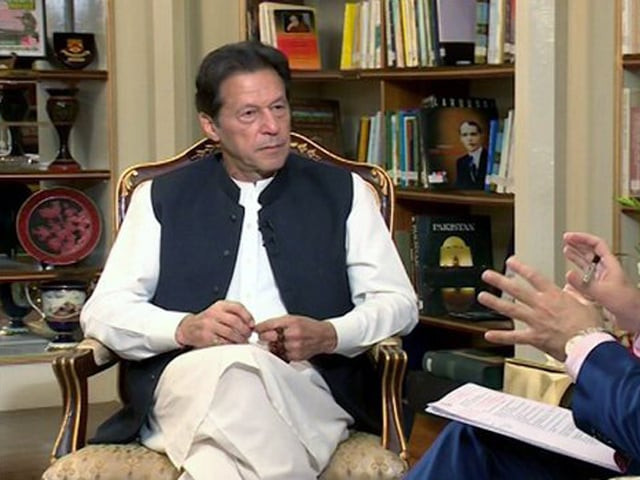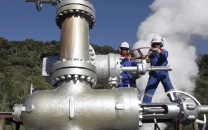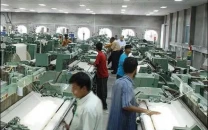Economic potential and priorities
There is missing link between incentives and efficiency, output, job creation

Prime Minister Imran Khan was quite right in saying “nations develop after spending money on education, not selling cotton and cloth” while launching the “Knowledge City” last week.
Now what? Is there a plan to spend more on education and reap economic benefits out of it, even if so, it certainly needs time – a generation at least.
Why not to benefit from something that is readily available, ie the current knowledge assets of Pakistan, and achieve economic growth more than what we could by selling cotton and cloth.
The recent history of global economic and export development could be tracked in four phases - starting with agriculture, moving on to industrialisation and then services towards the end of previous century, but now the world is in the knowledge-economy phase.
This could be witnessed through changes in top companies and exporting countries in recent years. Which phase are we in Pakistan?
At best in the industrialisation. Is it enough to compete at the global level and achieve economic and human development for 220 million people? Above all, does it correspond to Pakistan’s resource endowments? Not at all, in my view.
Where is the missing link then? In my view, the link between economic potential and policy priorities is missing altogether.
More than 50% of Pakistan’s gross domestic product (GDP) is composed of services but with a significantly less policy focus in the form of government support programmes and subsidies.
One finds it hard to find a link between continued protection, in the form of tariffs and subsidies, and efficiency/ output of certain industrial sectors. In order to create a logical linkage, why not to link such an incentive structure with efficiency, output, contribution to employment generation and exports.
Another missing link is that exports are not even 10% of GDP but probably 90% of fiscal and policy incentives are geared towards the exporting sectors.
A potential mitigation for the two aforementioned missing links would be to recognise the economic output potential and put policy focus towards sectors under the knowledge economy.
It does not take much to find evidence of better efficiency for the input deployed in knowledge economy sectors, including in Pakistan. More than the efficiency, it is the growth potential for this sector in the form of contribution to national economic development and exports for global marketplace.
Due to the changing nature of global supply chains, traditional exports of Pakistan would not be sustainable in the medium to long term, let alone meet the anticipated growth targets.
Global markets and consumer trends are changing very rapidly, therefore banking on growth of textile exports may not qualify for a forward-looking and sustainable approach. It takes heavy investment and longer timeframes to mobilise different industrial sectors, including textile.
Knowledge economy could be a perfect alternative. Not only due to low resource requirements, but more so due to efficiency, agility, ease of delivery (mostly online), ever expanding global marketplace and availability of raw material (human resources).
What is knowledge economy? Essentially, it is the innovation and commercialisation of ideas. Google, Apple, Netflix and Alibaba are just a few products of knowledge economy.
A point to be noted is that information technology (IT) is part of the knowledge economy, but it should be used as a platform and not as the final product. In other words, the potential value lies in ideas that are materialised by essentially using IT platforms.
In Pakistan, the IT sector is somehow thriving, with or without government support. It provides a fertile ground for using this platform to nurture ideas and come up with world-class knowledge products.
Why did it not happen thus far if the ground is fertile? Here comes the missing link, which needs to be provided through government policy support.
Barring a few small initiatives, that too mainly private sector led, there is no major efforts towards establishing a framework and support mechanisms, such as venture capital funds and public-private partnerships, to commercialise ideas.
Almost an absence of any reward mechanism and support infrastructure pushes the brilliant brains of Pakistan towards finding opportunities for themselves in the form of jobs in overseas markets, thus resulting in export of factories (brains) rather than products that would yield much higher returns over a longer period of time.
My proposal, that the government of Pakistan may consider, is to establish Pakistan Innovation Fund (PIF) to provide a supporting platform for knowledge economy growth in the country. This fund will serve not only as a financing mechanism to reward innovation but also as a supporting framework to commercialise in national and international markets and an aggregated platform.
It does not require huge seed funding, which could be allocated from deep pockets of the Export Development Fund of Pakistan. In due course, the fund will become self-sustaining as a result of a cost and profit-sharing structure with innovators.
Another supporting effort, in this regard, would be to change the mindset of commercial diplomats of Pakistan and draw their focus towards gathering, analysing and transferring global trends towards knowledge economy producers/ innovators in Pakistan.
Institutional support mechanisms will certainly help the micro, small and medium enterprises engaged in knowledge economy.
Pakistan may not be a well-developed country for economic efficiency and industrial output, but it certainly has reasonable headcount with productive brains. Would it not be better to use this advantage and export products (of brain/ knowledge) rather than the factories (brain drain)?
The writer is an international economist
Published in The Express Tribune, November 2nd, 2020.
Like Business on Facebook, follow @TribuneBiz on Twitter to stay informed and join in the conversation.












1726134115-0/BeFunk_-(41)1726134115-0-208x130.webp)






COMMENTS
Comments are moderated and generally will be posted if they are on-topic and not abusive.
For more information, please see our Comments FAQ